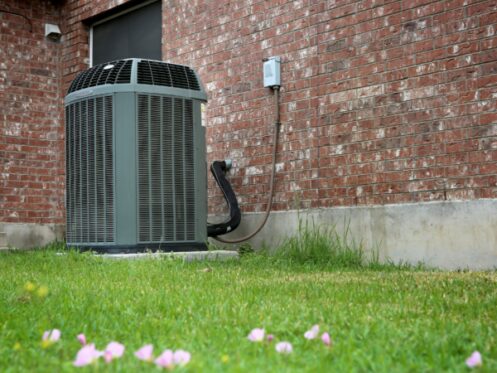When you’re ready to upgrade to an energy-efficient and eco-friendly way to heat and cool your home or building, geothermal heat pumps are the place to start. Here’s why:
Instead of chemical refrigerants and/or carbon-based fuels, geothermal heat pumps use the Earth’s temperature to heat your home when it’s cold out and cool your home when the weather is hot. In addition to the obvious environmental benefits, geothermal heat pumps cost far less to operate than traditional HVAC systems.
How Geothermal Heat Pump Systems Work
Geothermal heat pump systems work by using the Earth’s constant temperature to heat and cool homes and buildings. These systems use a series of pipes buried in the ground, which circulate a fluid that absorbs heat from the ground during the winter and releases heat into the ground during the summer. This heat exchange process is helped along by a heat pump, which compresses the absorbed heat to provide heating and provide cooling by expanding it.
There are three main types of Geothermal heat pump systems: closed-loop, open-loop, and hybrid. Closed-loop systems circulate a fluid through a closed system of pipes buried in the ground, while open-loop systems use an underground water source to transfer heat. Hybrid systems combine elements of both closed-loop and open-loop systems.
Advantages of Geothermal Heat Pump Systems
One of the most significant advantages of Geothermal heat pump systems is their energy efficiency. These systems can provide up to 70% savings on energy costs compared to traditional HVAC systems. Geothermal systems also reduce greenhouse gas emissions, as they use renewable energy from the Earth’s constant temperature. Moreover, Geothermal heat pump systems are long-lasting and require less maintenance than traditional HVAC systems, making them a cost-effective option over their lifespan.\
Installation and Maintenance of Geothermal Heat Pump Systems
Installing a Geothermal heat pump system involves drilling boreholes in the ground and installing pipes, a heat pump, and other components. The cost of installation can vary depending on factors such as the location, size of the system, and type of ground.
Regular maintenance of a Geothermal heat pump system is necessary for optimal performance and longevity. This includes checking the fluid level, cleaning the air filters, and inspecting the ground loop for leaks or damage. The maintenance requirements for Geothermal heat pump systems are generally lower than those of traditional HVAC systems.
Geothermal Heat Pump System Applications
Geothermal heat pump systems can be used for residential and commercial applications. These systems can be customized to meet the heating and cooling needs of a variety of buildings, from single-family homes to large commercial buildings. Geothermal heat pump systems can also be integrated with other renewable energy sources such as solar or wind power, to further reduce energy consumption and greenhouse gas emissions.
Conclusion
Geothermal heat pump systems offer a sustainable and cost-effective way to heat and cool homes and buildings. With their energy efficiency, environmental benefits, and long lifespan, these systems are a wise investment for anyone seeking to reduce their carbon footprint and save on energy costs.
Questions? Call us, We are the Heat Pump Pros.



